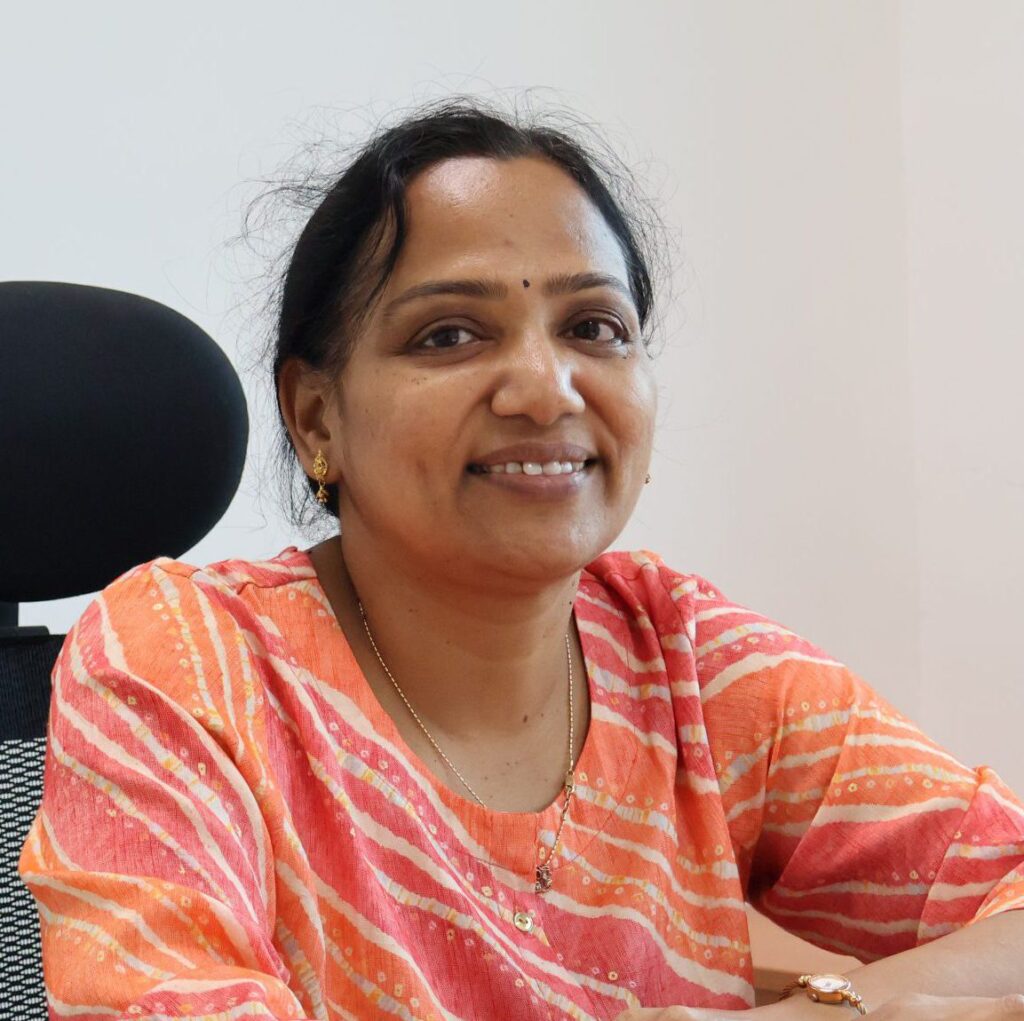Prof. Neelam Sinha

Biosketch
Mr. Ameiy Acharya, an intern in the lab, has won a prize for best presentation for his poster titled “Graph-based Framework for classification between MCI and healthy subjects using fMRI Time series“, at the Digital Health Symposium and Roundtable, held at IIT Kharagpur, November 2023.
“CNN-based Automated Pipeline for Accurate Computation of Magnetic Resonance Parkinsonism’s Index Measurements”, by Punith B.V, Neelam et al., accepted for presentation at ISMRM 2024, to be held at Singapore in May 2024.
“Analysis of Mild Cognitive Impairment utilizing covariance matrices of brain regions”, Ammu R and Neelam Sinha, accepted for publication in 33rd IEEE International workshop on Machine Learning for signal processing (MLSP 2023)
“3D segmentation of unruptured intra-cranial aneurysms using task-specific transfer learning and pure convnets”, Snigdha Agarwal and Neelam Sinha accepted for publication in 33rd IEEE International workshop on Machine Learning for signal processing (MLSP 2023)
“Measuring deviation from stochasticity in time series using autoencoder-based time-invariant representation: Application to black hole data”, Chaka SaiPradeep, Neelam Sinha and Banibrata Mukhopadhyay, in proceedings of 48th IEEE Conference on Acoustics, speech and signal processing (ICASSP 2023)
Simultaneous segmentation of multiple structures in fundal images using multi-tasking deep neural networks”, Sunil Kumar Vengalil, Bharath K and Neelam Sinha, in Frontiers of Signal Processing 2:71, Dec 2022
“An investigation of the multidimensional (1D vs 2D vs 3D) analyses of EEG signals using traditional methods and deep-learning based methods”, Shah D, Gopika K. G and Neelam Sinha, in Frontiers of Signal Processing 2:93760, July 2022
“Analysis of single channel electroencephalographic signals for visual creativity: A pilot study”, by Gopika Gopan K, SVRA Reddy, Madhav Rao and Neelam Sinha in Biomedical Signal Processing and Control, Volume 75, May 2022, 103542.
“Determining chromosomal arms 1p/19q co-deletion status in low graded glioma by cross correlation-periodogram pattern analysis”, by Debanjali Bhattacharya, Neelam Sinha & Jitender Saini, in Scientific Reports-Nature, Vol. 11(23866), 2021
“EEG Analysis of Mathematical Cognitive Function and Startle Response using Single Channel Electrode”, by Gopika Gopan K, SVRA Reddy, Kumaresh Krishnan, Madhav Rao and Neelam Sinha in CSI Transactions on ICT 8 (4), 367-376, Dec 2020
“A New Statistical Framework for Corpus Callosum Sub-region Characterization Based on LBP Texture in Parkinsonian Disorders”, by Debanjali Bhattacharya, Neelam Sinha, Jitender Saini, Shweta Prasad, Pramod Pal, and Sandhya M, Frontiers in Neuroscience, Vol.14, Article 477, pp:1-13, May 2020
“Sleep EEG analysis utilizing inter-channel covariance matrices”, by Gopika Gopan K, S. S Prabhu and Neelam Sinha, in Biocybernetics and Biomedical Engineering 40 (1), 527-545, Jan 2020
Additionally – Coding skills in Python/R/MATLAB, Familiarity with MR Toolboxes, statistical methodology
- Analyze Time series of functional MR volumes to understand brain networks
- Utilising Diffusion-weighted MR images to estimate brain age
- Integrate findings from EEG and fMRI time series to understand neurodegeneration
- Analyze Structural MR images to study cognitive capabilities
Internship / Project work as part of degree requirements at UG/PG level – We are always on the lookout for highly motivated individuals with a background in data analysis/signal processing/machine learning/ computer vision/statistics/bio-medical engineering. If you are interested, get in touch with us for a discussion.
-
Centre for Brain Research
Indian Institute of Science Campus
CV Raman Avenue
Bangalore 560012, India. - +91 80 2293 3588
